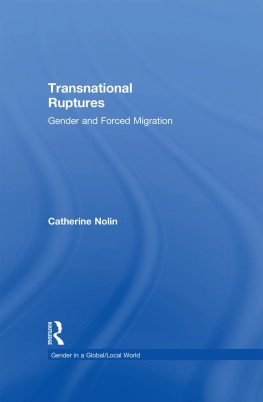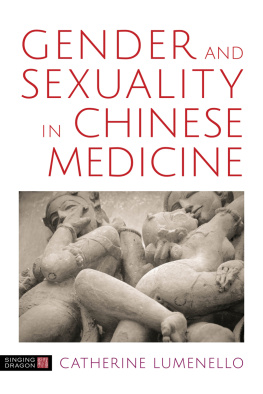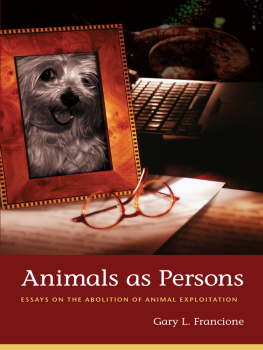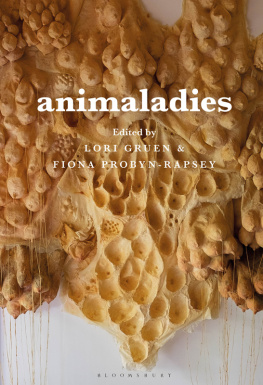Catherine Duxbury - Science, Gender and the Exploitation of Animals in Britain Since 1945
Here you can read online Catherine Duxbury - Science, Gender and the Exploitation of Animals in Britain Since 1945 full text of the book (entire story) in english for free. Download pdf and epub, get meaning, cover and reviews about this ebook. year: 2021, publisher: Routledge, genre: Romance novel. Description of the work, (preface) as well as reviews are available. Best literature library LitArk.com created for fans of good reading and offers a wide selection of genres:
Romance novel
Science fiction
Adventure
Detective
Science
History
Home and family
Prose
Art
Politics
Computer
Non-fiction
Religion
Business
Children
Humor
Choose a favorite category and find really read worthwhile books. Enjoy immersion in the world of imagination, feel the emotions of the characters or learn something new for yourself, make an fascinating discovery.

- Book:Science, Gender and the Exploitation of Animals in Britain Since 1945
- Author:
- Publisher:Routledge
- Genre:
- Year:2021
- Rating:3 / 5
- Favourites:Add to favourites
- Your mark:
- 60
- 1
- 2
- 3
- 4
- 5
Science, Gender and the Exploitation of Animals in Britain Since 1945: summary, description and annotation
We offer to read an annotation, description, summary or preface (depends on what the author of the book "Science, Gender and the Exploitation of Animals in Britain Since 1945" wrote himself). If you haven't found the necessary information about the book — write in the comments, we will try to find it.
Science, Gender and the Exploitation of Animals in Britain Since 1945 — read online for free the complete book (whole text) full work
Below is the text of the book, divided by pages. System saving the place of the last page read, allows you to conveniently read the book "Science, Gender and the Exploitation of Animals in Britain Since 1945" online for free, without having to search again every time where you left off. Put a bookmark, and you can go to the page where you finished reading at any time.
Font size:
Interval:
Bookmark:

- Section I Law, animal welfare and gender
- 1British animal experimentation law since 1945: Property, pastoral power and governmentality
- 2The march of Thatcherism: Neoliberal laboratory care and the assent of the ASPA, 19811986
- 3The powerpain nexus: How women's subjugation subtends speciesism in the legal system
- Section II Scientific intersections: The practice of animal experimentation and its gendered dimensions
- 4Animal experimentation at Porton Down: Britain's Military-Animal-Industrial Complex, 19481955
- 5Containing the laboratory animal: Laboratory spaces and gendered places, 1947present
- 6Anxious animals, monstrous menstruating women and the science of stress, 1947present
- Section III Conclusion: 21st century compassion fatigue
- Conclusion
- Half Title
- Section I Law, animal welfare and gender
- 1 British animal experimentation law since 1945: Property, pastoral power and governmentality
- 2 The march of Thatcherism: Neoliberal laboratory care and the assent of the ASPA, 19811986
- 3 The powerpain nexus: How women's subjugation subtends speciesism in the legal system
- Section II Scientific intersections:The practice of animal experimentation and its gendered dimensions
- 4 Animal experimentation at Porton Down: Britain's Military-Animal-Industrial Complex, 19481955
- 5 Containing the laboratory animal: Laboratory spaces and gendered places, 1947present
- 6 Anxious animals, monstrous menstruating women and the science of stress, 1947present
Font size:
Interval:
Bookmark:
Similar books «Science, Gender and the Exploitation of Animals in Britain Since 1945»
Look at similar books to Science, Gender and the Exploitation of Animals in Britain Since 1945. We have selected literature similar in name and meaning in the hope of providing readers with more options to find new, interesting, not yet read works.
Discussion, reviews of the book Science, Gender and the Exploitation of Animals in Britain Since 1945 and just readers' own opinions. Leave your comments, write what you think about the work, its meaning or the main characters. Specify what exactly you liked and what you didn't like, and why you think so.







